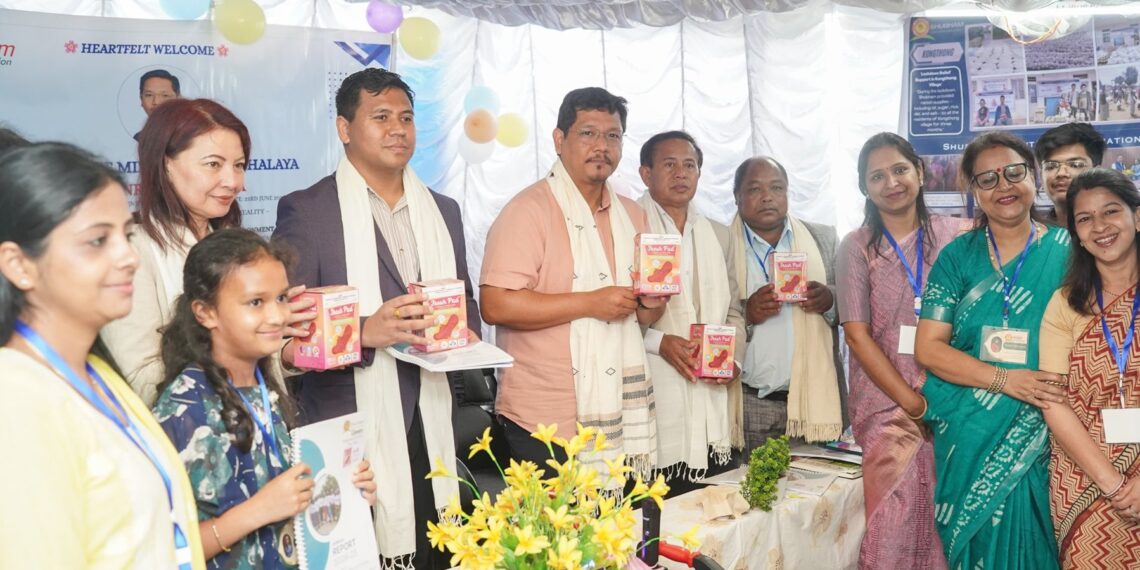Shillong: Meghalaya government on Monday inaugurated the region’s first production unit under the “She-Rise” initiative, a Zero Waste Period Mission, at Laitkroh in East Khasi Hills District.
This pioneering project, launched by the Shubham Charitable Association as part of the Green Meghalaya Mission, is dedicated to producing reusable sanitary pads—a first of its kind in the North East.
“She-Rise is not just a production unit; it is a movement that promotes menstrual hygiene, protects our environment, and empowers women. By offering safe, affordable, and eco-friendly alternatives, we are addressing a vital public health issue while building resilient communities,” said Chief Minister Conrad K Sangma during the launch.
The project received financial support of Rs. 5 lakh under the Chief Minister’s Special Grant (CMSG), which facilitated the procurement of necessary machinery and equipment.
It has already provided employment opportunities to over 25 women, marking a significant step toward women’s economic empowerment.
Applauding the efforts of the Shubham Charitable Association, Sangma announced plans to scale up the initiative across Meghalaya.
“We are committed to expanding this initiative statewide and encouraging more women-led organizations to join the cause. This not only creates jobs but also helps normalize conversations around menstrual hygiene and ensures that no girl is held back due to lack of access to basic sanitary care,” he stated.
The government also plans to install sanitary pad vending machines in schools and introduce reusable sanitary pads across educational institutions in collaboration with the Education and Social Welfare departments.
ALSO READ: Community leaders join Meghalaya CM in inaugurating new block office
“Menstrual hygiene is a fundamental health right. We are working to break taboos, promote eco-conscious choices, and support women’s dignity with sustainable solutions,” said Puspa Bajaj, founder of Shubham Charitable Association.
Bajaj further noted ongoing efforts to explore local, sustainable fabric alternatives, including bamboo and banana fibre, to enhance the initiative’s eco-friendly impact.















